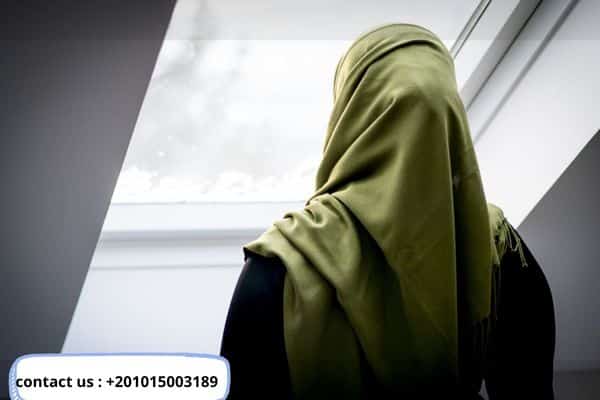The hijab is commonly linked to Islam, raising the question, can you wear a hijab without being Muslim? This topic has generated diverse discussions, highlighting various cultural and religious viewpoints.
Can You Wear a Hijab Without Being Muslim?
The question “Can you wear a hijab without being Muslim?” often comes up in conversations about cultural and religious traditions. While the straightforward answer is yes, it’s important to understand and respect the hijab’s deeper cultural and religious meanings if you choose to wear it.
The hijab is a head covering that symbolizes modesty, privacy, and morality. While it is predominantly worn by Muslim women as part of their religious observance, it also serves as a cultural symbol in many Muslim-majority societies. The practice of wearing a hijab is rooted in Islamic teachings, where it is considered an act of faith and a marker of identity.
You can take a look about: When Can a Woman Take Off Her Hijab?
Understanding the Significance of the Hijab
For Muslims, the hijab is more than just a piece of clothing; it is an expression of their faith and values. It represents a commitment to modesty and piety, and it is worn to fulfill religious obligations. This is why it is crucial for non-Muslims who wish to wear a hijab to approach it with the same level of respect and understanding.
Cultural Sensitivity and Respect
Wearing a hijab without being Muslim can be seen in different lights depending on the context. In multicultural societies, some non-Muslim women may choose to wear the hijab to show solidarity with Muslim women or as a form of cultural appreciation. However, it is important to be mindful of the potential for cultural appropriation. Appropriation can occur when cultural symbols are used out of context or without regard for their significance to the original community.
Situations Where Non-Muslims Might Wear a Hijab
There are several situations where non-Muslims might wear a hijab, such as:
- Traveling to Muslim-majority countries: Wearing a hijab can be a sign of respect for local customs and traditions.
- Religious or cultural events: Non-Muslims might wear a hijab when attending events like weddings or funerals in Muslim communities.
- Solidarity and support: Some non-Muslims wear a hijab to stand in solidarity with Muslim women, especially in contexts where Muslims face discrimination.
How to Wear a Hijab Respectfully
If you decide to wear a hijab without being Muslim, it is essential to do so respectfully. Here are some tips:
- Learn about its significance: Understand why Muslim women wear the hijab and what it means to them.
- Avoid using it as a costume: The hijab should not be worn as a fashion accessory or a costume.
- Respect local customs: If you are in a Muslim-majority area, follow the local customs and practices regarding hijab.
Let me tell you any woman who needs to know how to wear a hijab respectfully needs to study ISLAMIC STUDIES well and join with Muslim groups to guide her.
What Other Religions Say About the Hijab
The concept of covering one’s head is not unique to Islam. Other religions also have similar practices. For instance, in Christianity, particularly among Catholic nuns, the head is often covered as a sign of modesty and devotion. Jewish women may wear a tichel or sheitel for similar reasons. Therefore, the idea of head coverings transcends Islam and can be seen in various religious practices around the world.
Asking for a Friend: Can a Non-Muslim Woman Wear a Hijab for Fashion?
Fashion is an ever-evolving industry that often borrows elements from different cultures and religions. When it comes to the hijab, some non-Muslim women might wear it as a fashion statement. If you ask, “Can you wear a hijab without being Muslim” for fashion purposes, the key is to approach it with sensitivity. Wearing the hijab without understanding its cultural significance can be seen as appropriation, which can be offensive to many Muslims.
Is the Hijab Only Mandatory in Islam?
The hijab is most commonly associated with Islam, where it is considered mandatory for Muslim women as a part of their faith. However, the idea of covering one’s head for modesty is present in other religions as well. For example, some Christian and Jewish traditions also encourage women to cover their heads, though the styles and reasons might differ.
Different Religions and Practices That Mandate a Head Cover
The practice of covering the head is a common tradition across various religions and cultures worldwide. Each religion has its unique reasons, styles, and significance for this practice, reflecting a rich tapestry of beliefs and values. Understanding these diverse practices can foster greater respect and appreciation for the traditions of different communities.
Sikhism
In Sikhism, both men and women cover their heads as an expression of faith and devotion. Sikh men typically wear turbans, known as “dastar” or “pagri,” which symbolize honor, self-respect, courage, spirituality, and piety. The turban is also a reminder to Sikhs of their commitment to their faith and their duty to uphold justice and equality. Sikh women might wear a headscarf called a “chunni” or “dupatta,” especially in religious settings or during prayer.
Hinduism
In Hinduism, head coverings are often worn as a sign of respect, especially in temples or during religious ceremonies. Women might drape a part of their sari over their heads or use a separate cloth called a “ghoonghat.” This practice signifies humility and reverence towards the divine. In many regions of India, covering the head is also a cultural practice observed during significant life events such as weddings and festivals.
Christianity
Head covering has historical roots in Christianity, particularly among Orthodox and Catholic Christians. Some Christian women cover their heads with a veil, hat, or scarf during worship services. This practice is often based on biblical passages that emphasize modesty and respect in the presence of God. In certain denominations, such as the Amish and Mennonites, women wear bonnets or head coverings as a daily expression of their faith and community values.
Judaism
In Judaism, covering the head is a sign of reverence and recognition of a higher authority. Jewish men wear a kippah or yarmulke, especially during prayer, religious study, and meals. Some Jewish women cover their hair with a scarf, hat, or wig (sheitel) after marriage, which symbolizes modesty and marital fidelity. The practice varies widely among different Jewish communities, reflecting a range of interpretations and traditions.
Islam
In Islam, the hijab is perhaps the most well-known form of head covering. Muslim women wear the hijab as an act of faith, modesty, and identity. The Quran encourages both men and women to dress modestly, and the hijab is one manifestation of this principle. There are various styles of hijab, and the practice can vary based on cultural and personal preferences.
Other Religious and Cultural Practices
Beyond these major religions, head coverings are also found in other cultural and spiritual contexts. For instance, in traditional African religions and cultures, head wraps and coverings can signify status, marital status, or be part of ceremonial attire. In certain Buddhist traditions, monks, and nuns shave their heads or cover them to symbolize renunciation of worldly attachments
Conclusion
In summary, the question “Can you wear a hijab without being Muslim” opens a broader conversation about cultural sensitivity, respect, and understanding. While non-Muslims can wear a hijab, it is crucial to do so with respect for its religious and cultural significance. Head coverings have been a part of many religious traditions, each symbolizing different values and beliefs. By appreciating these differences, we can foster a more inclusive and respectful world.
I hope that you find the answer of Can You Wear a Hijab Without Being Muslim? in our article
FAQs
1. Can you wear a hijab without being Muslim?
Yes, you can wear a hijab without being Muslim, but it’s important to understand and respect its cultural and religious significance.
2. What does the hijab symbolize in Islam?
The hijab symbolizes modesty, privacy, and morality, and is worn by Muslim women as an expression of their faith and commitment to Islamic teachings.
3. Are there other religions that mandate head coverings?
Yes, several religions, including Sikhism, Christianity, Judaism, and Hinduism, have traditions of head coverings, each with unique reasons and significance.
4. Is it considered cultural appropriation to wear a hijab if you’re not Muslim?
It can be considered cultural appropriation if worn without understanding its significance or in a context that disrespects its cultural and religious meanings.
5. Can non-Muslim women wear a hijab for fashion purposes?
Non-Muslim women can wear a hijab for fashion, but they should do so with sensitivity and respect for its cultural and religious importance to avoid offending others.



